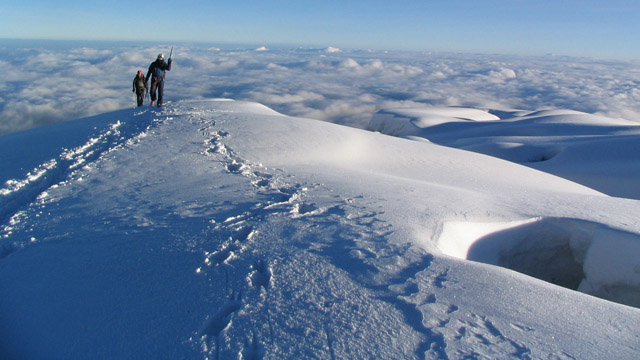How do you feel today? Heavy as a ton of lead, or a ton of feathers? Light on your feet, or dragging on the ground? It probably depends on a lot of things, most particularly your present physical state, and possibly on a pound or two that you're up, or down, because of holiday eating, or fasting, or a long list of other factors.
Your weight, however, is not just dependent on your diet or your state of mind, but in some measure to physical factors beyond your control, like gravity itself.
Your weight is the product of your actual mass (how much matter is in your body) and the acceleration you experience mostly due to the force of gravity pulling you toward the Earth's center. At the Earth's surface the force of gravity is inversely proportional to the square of your distance to Earth's center of mass. So, if you were twice as far from the Earth's center as you are now, you'd weight one divided by two squared, or one quarter, as much. Of course that would put you almost 4000 miles into space!
The only thing we ordinary (non-astronaut) humans can do to affect our weight in this way is to climb a mountain, or fly in an airplane, to get farther from the Earth's center. How much lighter would you be, say by climbing a three mile high mountain, compared to sea level? As it turns out, about 0.2%--so a 150 pound person would weigh about a third of a pound less at the top of Mount Shasta than on Ocean Beach. You'd lose much more weight from the exercise alone….
Places to avoid if you want to lose weight under the gravitational plan would be Earth's poles, for a couple of reasons. One is that at the poles, even at sea level, you're about 13 miles closer to the Earth's center than you are at the Equator. The reason for this is that Earth isn't a perfect sphere, but an "oblate sphereoid"…in other words, a shape like a ball of playdough that you made into a nice sphere, but then squashed slightly between your palms.
